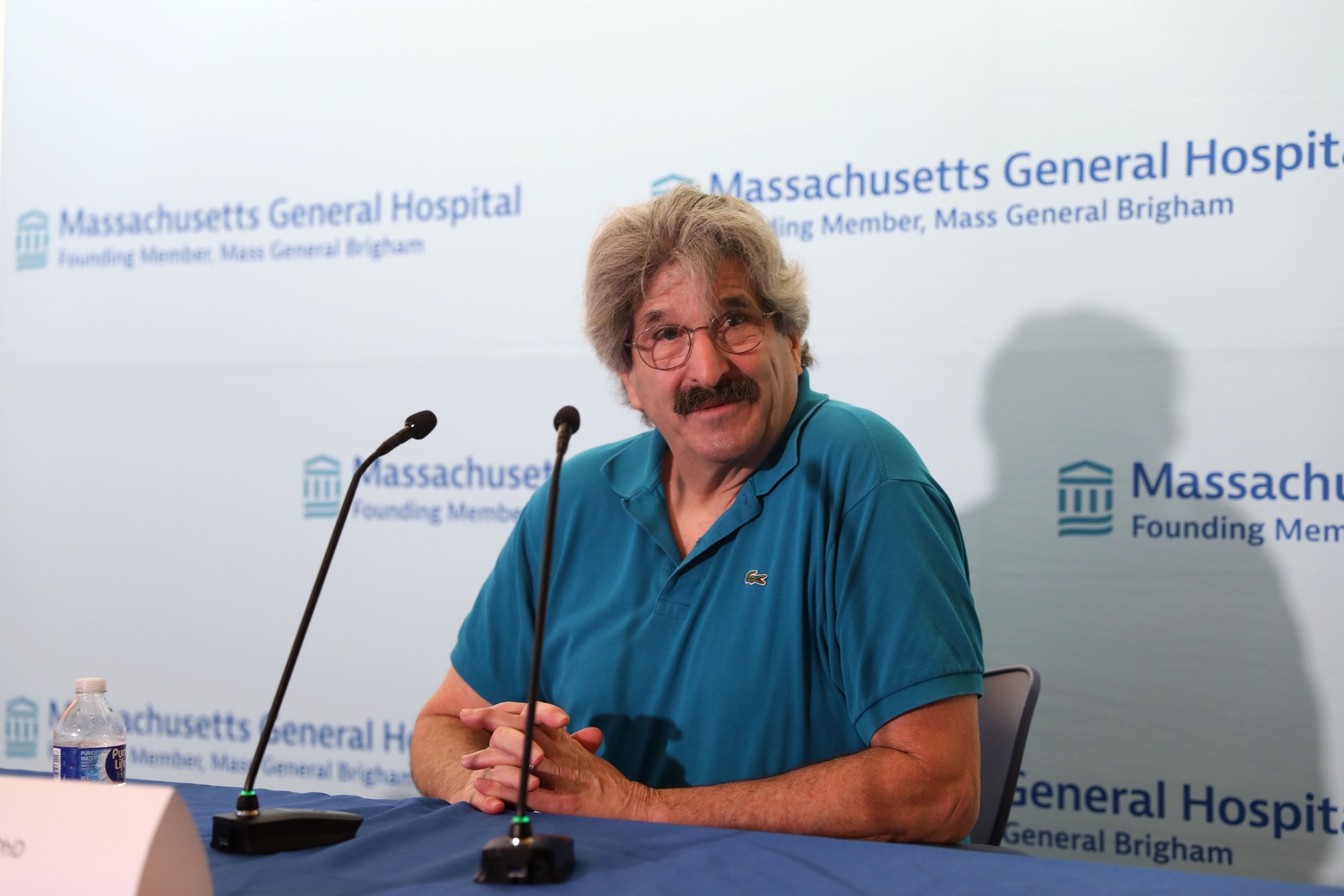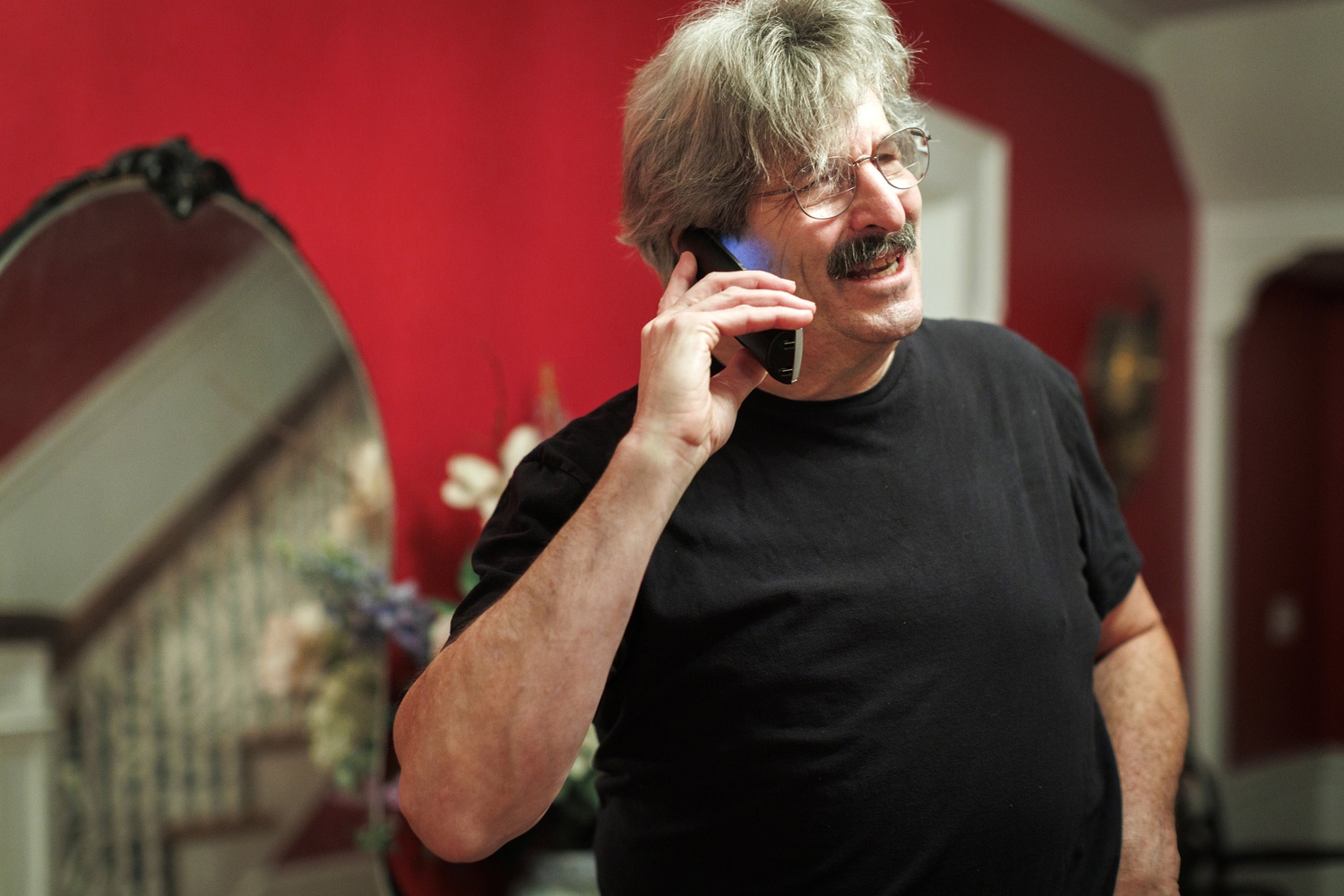
News
Summers Will Not Finish Semester of Teaching as Harvard Investigates Epstein Ties

News
Harvard College Students Report Favoring Divestment from Israel in HUA Survey

News
‘He Should Resign’: Harvard Undergrads Take Hard Line Against Summers Over Epstein Scandal

News
Harvard To Launch New Investigation Into Epstein’s Ties to Summers, Other University Affiliates

News
Harvard Students To Vote on Divestment From Israel in Inaugural HUA Election Survey
Harvard Professor Gary Ruvkun Wins 2024 Nobel Prize in Medicine

Updated October 7, 2024, at 2:10 p.m.
BOSTON — Gary B. Ruvkun, a professor of genetics at Harvard Medical School and a microbiologist at Massachusetts General Hospital, was awarded the 2024 Nobel Prize in Medicine, the Nobel Committee announced early Monday morning.
Ruvkun — who shared the award with Victor R. Ambros, a professor at the University of Massachusetts Medical School — received the prize for their discovery of microRNA, “a new class of tiny RNA molecules that play a crucial role in gene regulation,” according to the Nobel Committee.
Ruvkun and Ambros previously shared the Lasker Award for Basic Medical Research in 2008 in recognition of their work on microRNA. The Lasker Award is sometimes described as the “American Nobel Prize” because a significant number of laureates have later received the Nobel Prize in Physiology or Medicine for the work — a list that Ruvkun and Ambros added their names to on Monday.
Still, though, Ruvkun says that winning the Nobel is unlike anything else.
“It’s been a good morning,” Ruvkun said during a press conference on Monday.
“There are a lot of awards, but the Nobel is its own class in terms of how much attention it gets,” he added. “It’s a completely different world.”
Ruvkun is the first Harvard Medical School professor to win a Nobel Prize in medicine in five years, when William G. Kaelin received the prize in 2019, and the 17th Harvard professor ever to win the prize since it was first awarded in 1901. The geneticist has been at Harvard since 1976, when he began his Ph.D. after obtaining his bachelor’s degree at the University of California, Berkeley.
Although Ruvkun initially discovered microRNAs in the tiny worm C. elegans in 1993, Ruvkun said that the pressure of writing a grant application was what led him to realize that the finding was much larger than a small worm.
“Turns out writing grants — the tension of writing grants — is good for you,” Ruvkun said.
“I said, ‘Oh, I should look and see what’s in humans,’” Ruvkun recalled. “And boom — it comes back matching the human genome.”
In the 1980s, Ambros and Ruvkun were postdocs in the lab of H. Robert Horvitz, an MIT biology professor and 2002 Nobel Laureate, when they began working together on the research that would win them the Nobel nearly 40 years later.
Ambros himself taught at Harvard from 1984 to 1992, when he began teaching at Dartmouth College before later moving to the University of Massachusetts Medical School.
Harvard President Alan M. Garber ’76 wrote in a statement to The Crimson that “nobody who knows Gary or his work could be surprised by this recognition for his research on microRNA.”
“A brilliant investigator, his curiosity has led him to one remarkable insight into fundamental biology after another,” he added.
Harvard Medical School Dean George Q. Daley ’82 said in a statement that “Ruvkun’s and Ambros’s research elegantly combines evolutionary biology and genetics and reveals a completely novel dimension of gene regulation.”
“This curiosity-driven research is a powerful example of how fundamental discovery can provide insights that illuminate causes of disease and consequently can benefit humanity,” Daley added.

At the press conference, Daley also noted the “importance” of Ruvkun’s findings in the work of HMS researchers.
“We’ve been waiting for this accolade to be bestowed on you for quite a long time,” Daley said.
“Micro-RNA biology is essential to numerous laboratories across the globe, including my own,” he added.
Mass General Brigham President Anne Klibanski said that “his work extends a legacy of innovation, and it inspires the next generation.”
“As the largest hospital system research enterprise in the country, we are so uniquely positioned to convene academic medical centers, university-based research, cutting-edge industry partners to advance discovery — of local, national and global impact. Dr. Ruvkun’s work is such a vital part of that legacy,” she said.
Beyond being an impactful researcher, MGH Department of Molecular Biology Chair Jeannie Lee ’86 said that Ruvkun is also “an amazing colleague” and “an excellent mentor to all the young scientists in the department.”
Thomas Perlmann, secretary-general of the Nobel Committee, said during a press conference in Stockholm that he was “able to wake up Gary Ruvkun” to deliver the news about winning the Nobel Prize.
“His wife answered and it took a long time before he came to the phone and sounded very tired, but he quite rapidly was quite excited and happy when he understood what it was all about,” Perlmann added.
Though Ambros is no longer affiliated with Harvard, the Nobel Committee said in their announcement on Monday that the microRNA research that led to Ruvkun and Ambros winning the Nobel Prize was performed at Harvard by Ambros, and at HMS and MGH by Ruvkun.
Garber, who is the first person in decades to serve at the helm of Harvard with an M.D., said that “the implications of those discoveries aren’t always obvious at the outset.”
“With promising medical applications of microRNA research on the horizon, we are reminded — again — that basic research can lead to dramatic progress in addressing human diseases,” he added.
The Nobel Prize in Medicine comes with a cash award of 11 million Swedish kronor or $1 million. The official Nobel Prize ceremony will be held on Dec. 10, the anniversary of Swedish inventor Alfred Nobel’s death.
Monday’s announcement marks the beginning of a week filled with Nobel Prize announcements. On Tuesday, the Nobel committee will announce the prize in physics, followed by the prize in chemistry on Wednesday, literature on Thursday, and the Nobel Peace Prize on Friday.
At the Nobel Prize press conference, Perlmann said that he had not been able to speak with Ambros to deliver the news.
“I was not able to reach Victor Ambros yet,” Perlmann said. “I left a message on his mobile phone and hope he gives me a call soon.”
Ruvkun, reflecting on his trip to Sweden for Horvitz’s 2002 Nobel ceremony, said that he is excited to return to Stockholm in December.
“They know how to party,” Ruvkun said.
—Staff writer Rahem D. Hamid contributed to this report.
—Staff writer Veronica H. Paulus can be reached at veronica.paulus@thecrimson.com. Follow her on X @VeronicaHPaulus.
—Staff writer Akshaya Ravi can be reached at akshaya.ravi@thecrimson.com. Follow her on X @akshayaravi22.
Want to keep up with breaking news? Subscribe to our email newsletter.
